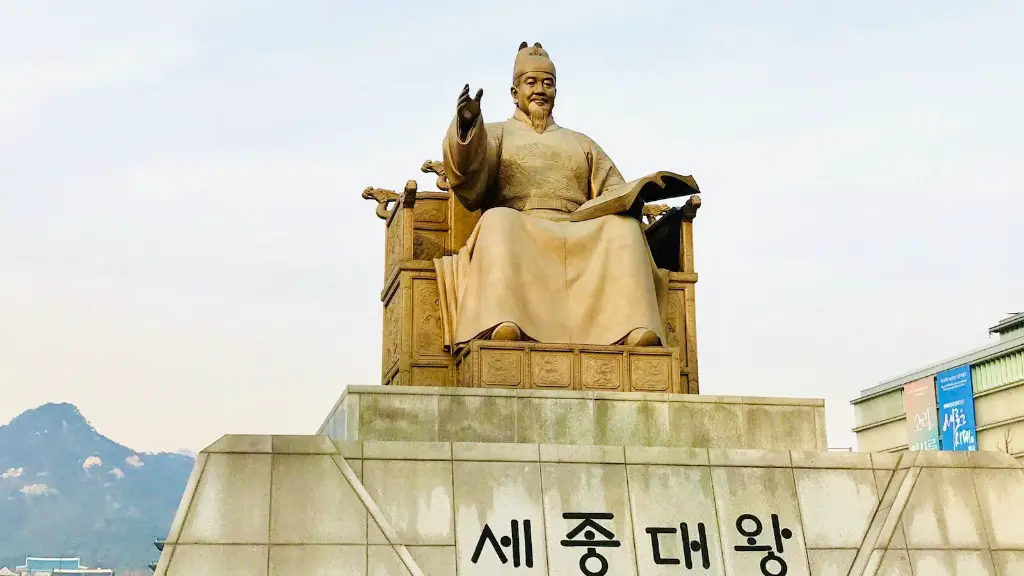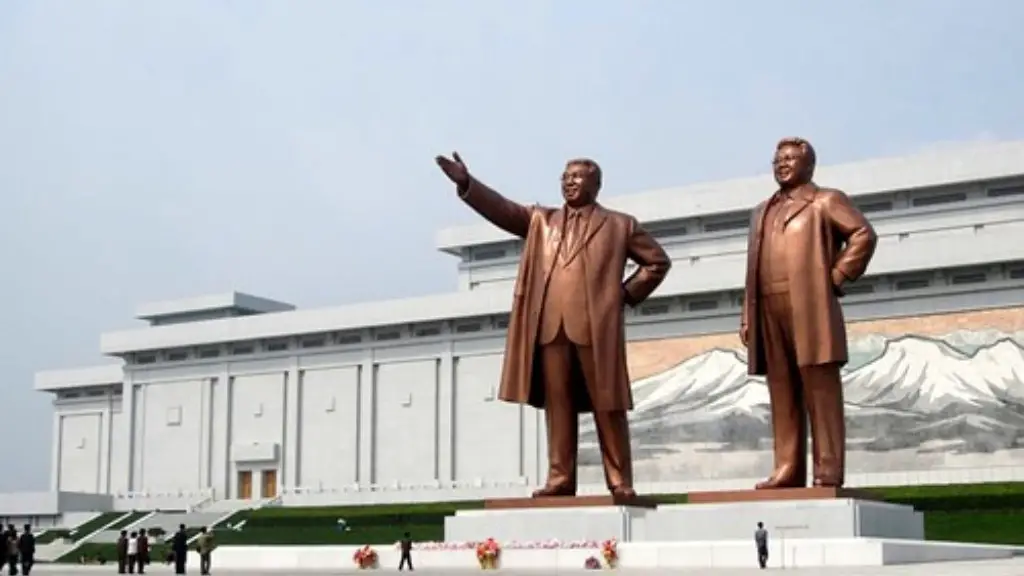North Korea has never been an easy nation to understand. For years, it has been one of the most isolated countries in the world, with a tirade of threats, fiery rhetoric and a series of missile tests that have worried the international community. But why does North Korea keep making threats?
One possible answer may lie in the North Korean leadership’s desire for power and control. North Korea is a single-party state, and its leadership has relied heavily on coercion and coercion to maintain its hold on power. The government has a long history of using scare tactics to keep its people in line, and these same tactics have been extended to other countries. The way it sees it, the more fear it can spread, the more it will be able to preserve and enhance its power, territory and authority.
The North Korea also seeks to exert influence in the region by making threats. By issuing a series of threats, it is attempting to force other nations into making concessions that are advantageous to the North Korean government, and to gain international recognition. The North Korea also uses threats, especially to its key ally – China – to maintain its isolation, and to push its agenda forward.
The North Korean government also uses its weapons of mass destruction, primarily nuclear weapons, to make threats. By claiming to possess such weapons, North Korea is able to increase its bargaining power and apply pressure to other nations, often successfully, thus furthering its own strategic goals. In addition, North Korea is known to use provocation in order to test the resolve of other nations, and to gain respect in the international community.
In addition, the North Korean leadership likely feels it needs to make threats in order to deliver on its promises, or to force other countries into making their own concessions. North Korea has always preferred to conduct its relationships on its own terms, and by demonstrating that it is a capable and determined enemy, it is hoping to gain the upper hand in negotiations.
Finally, North Korea may view threats as an effective way of gaining leverage over its regional rivals. By making hostile threats, the North Korean government hopes to force its rivals into making concessions that it believes to be beneficial to the North Korean state.
Sanctions
The United Nations Security Council imposed economic sanctions against North Korea due to its nuclear program, and this has further exacerbated their situation. Sanctions against North Korea have been used as a means of punishing them for their activities, as well as to limit their ability to acquire supplies and technology. Despite this, North Korea has still managed to acquire nuclear capabilities and has used the threat of its weapons to further its agenda.
These sanctions have had a detrimental effect on the country’s economy, as it has damaged trade and left the people in a state of poverty. It is difficult to estimate the exact cost of these sanctions, however there has been a significant reduction in North Korea’s GDP and an increase in their reliance on foreign aid.
The sanctions have also had a significant impact on North Korea’s ability to make threats. It is likely that North Korea’s leadership has recognised that the sanctions have weakened their position and reduced their ability to acquire technology and funds, and therefore they have been forced to engage in more aggressive tactics to further their objectives.
At the same time, the sanctions have had a limited effect on the North Korean government’s ability to make threats, as they have been able to continue their weapons programs, and have even successfully launched several intercontinental ballistic missiles. This shows that the North Korea is willing to ignore international pressure and pursue its interests regardless of the consequences.
International Response
The international community has responded to North Korea’s threats in various ways. The US, Japan, South Korea and other countries have held joint military exercises to demonstrate their resolve and willingness to defend against North Korean aggression. These exercises typically include naval drills and land-based missile defense drills that are designed to show North Korea that their threats will not be taken lightly and will be met with a decisive response.
In addition, the US and other nations have also implemented economic sanctions on North Korea in an attempt to limit their access to funds and resources, as well as to punish them for their nuclear program. The United Nations Security Council has also passed several resolutions that call for an end to North Korea’s nuclear program and the destruction of their nuclear weapons.
The international community has also sought to engage North Korea in diplomatic talks, although these have proven largely unsuccessful thus far. The South Korean government has held numerous summits with the North in an attempt to bring about an end to the long-running conflict, but these have largely been fruitless. It is likely that North Korea is using these talks as a way to strengthen its bargaining position, and to gain international attention and recognition.
International Relations
The North Korean threats have had a serious impact on international relations, particularly between North Korea and its rivals. North Korea’s belligerent behavior has further strained the already tense relations between the US and China, as the US has imposed sanctions against China in response to North Korea’s nuclear program. The tensions between these two countries have resulted in a trade war that has had a detrimental effect on both nations.
In addition, it has also resulted in a volatile situation in East Asia, where North Korea’s behavior has increased the risk of a military conflict. North Korea’s threats and provocative actions have also caused other nations, such as Japan and South Korea, to increase their military capacity in order to defend against potential North Korean aggression.
The North Korean threats have also had a negative impact on the global economy, as investors and businesses are hesitant to put their money in such an unstable political environment. This has caused many countries to put curbs on their investments in North Korea, and has made it more difficult for the country to attract outside investment.
Finally, North Korea’s threats have created a risk of nuclear war, a threat that is taken seriously by many nations. The US and other countries have made it clear that they will not tolerate the use of nuclear weapons and will take action to prevent it. As a result, it is likely that North Korea will continue to make threats in order to gain leverage and to further its own agenda.
Conclusion
North Korea’s continual threats are a major international security concern, and one that is difficult for the international community to address. Despite the pressure from sanctions and the threat of international intervention, North Korea continues to make threats in order to further its own strategic agenda. It is likely that North Korea will continue to pursue its course of action and make threats in an effort to gain more power, recognition and control.




